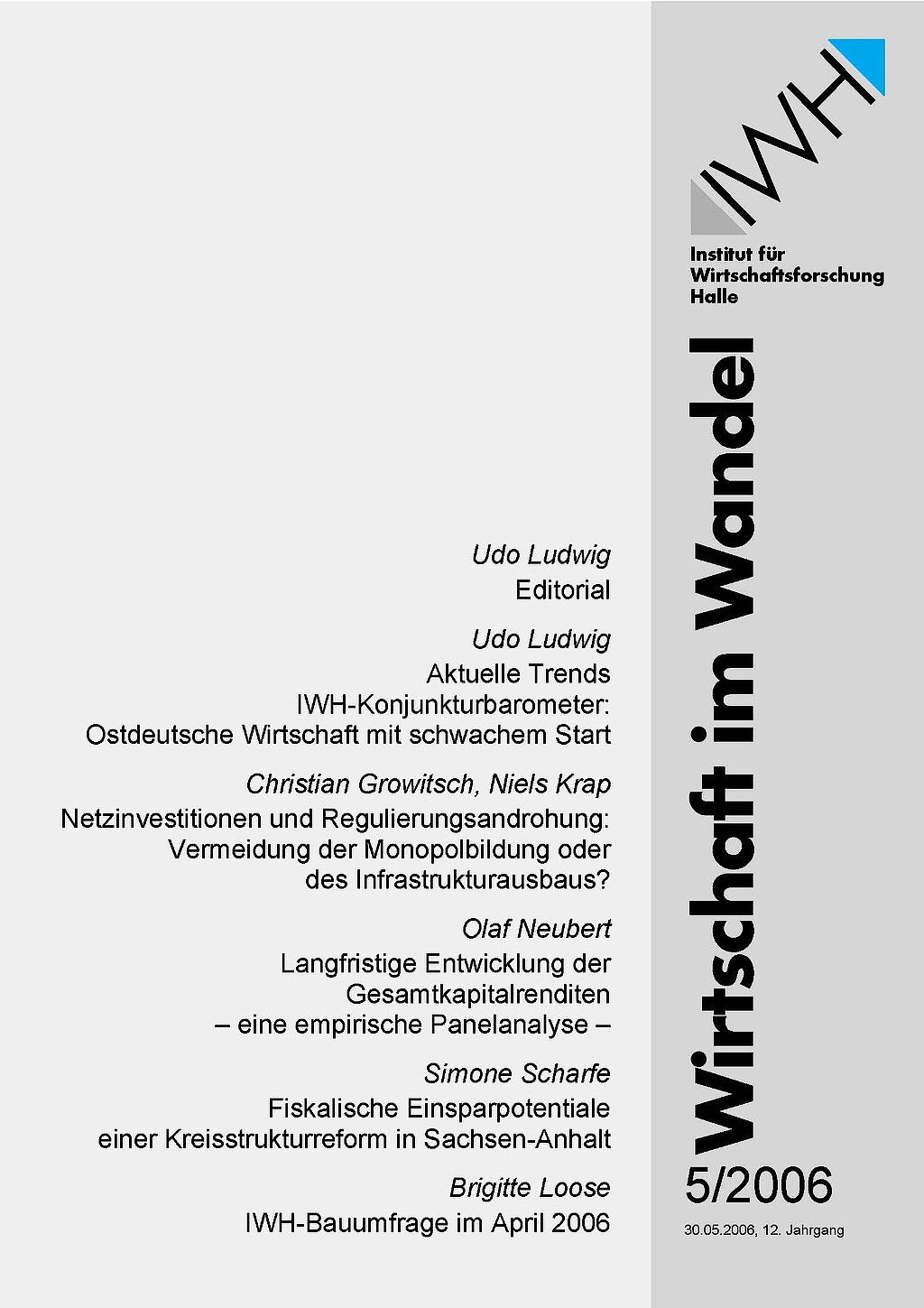
Network investment and the threat of regulation: avoiding monopoly or infrastructure extension
Im Sommer 2005 gab die Deutsche Telekom ihre Pläne für den Aufbau eines neuen Glasfasernetzes bekannt. Sie formulierte gleichzeitig die Bedingung, daß dieses Netz weder preislich noch hinsichtlich der Nutzung durch andere Anbieter (Netzzugang) reguliert werden sollte. Um die Investitionen zu ermöglichen, einigte sich die große Koalition im Koalitionsvertrag darauf, das neue Netz von der ex-ante Regulierung auszunehmen und diese Regulierungsfreiheit im Telekommunikationsgesetz zu integrieren. Es stellt sich nun die Frage, wie die Investitionen ermöglicht und gleichzeitig Wohlfahrtsverluste durch Monopolgewinne verhindert werden können. Spieltheoretisch läßt sich zeigen, daß eine Regulierungsbehörde wie die für den deutschen Telekommunikationssektor zuständige Bundesnetzagentur mit steigender Unsicherheit über die erwarteten Kosten und Erträge einer Investition eine zunehmende Toleranz gegenüber Abweichungen von einem von ihr selbst ermittelten und festgelegten Regulierungspreis signalisieren sollte. Dann führt bereits allein Androhung eines regulatorischen Eingriffs zu tolerierbaren Preisen, ohne daß eine tatsächliche Preisregulierung vorgenommen werden muß. Zukünftig sollte die Bundesnetzagentur allerdings Informationsasymmetrien reduzieren und das optimale Niveau an Toleranz vermindern, um zu einem präziseren Interventionspreis und einer effektiveren Regulierungsandrohung zu kommen. Die Wirksamkeit einer solchen Regulierungsandrohung läßt allerdings deutlich nach, wenn der Gesetzgeber den Regulierer per Gesetz von der Nutzung dieses Instrumentes ausschließt. Vor diesem Hintergrund geht der jüngst verfaßte Beschluß der Bundesregierung vom 17. Mai 2006 zur Novelle des Telekommunikationsgesetzes ökonomisch in die richtige Richtung, wird aber in der tatsächlichen Rechtspraxis seine Anreizkompatibilität beweisen müssen.




